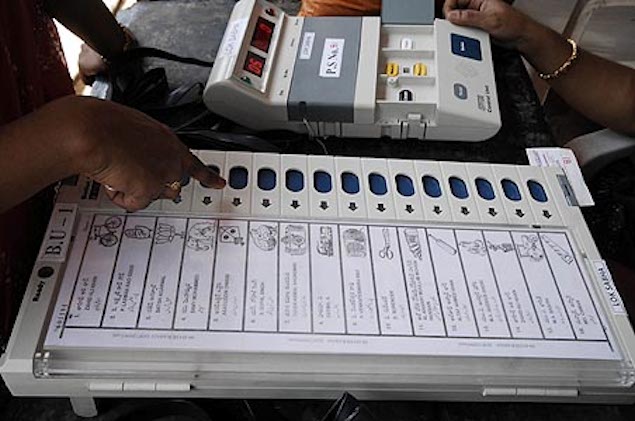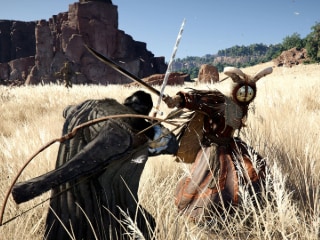- Home
- Internet
- Internet Features
- Elections 2014: A digital guide to voting
Elections 2014: A digital guide to voting

With just a few weeks remaining for the start of the elections, it's time for all of us to take stock of the situation. If you don't know how to vote, how to register, or even whom to vote for, then there is a lot of information that is now readily available on the Internet.
As we've noted earlier, the number of new voters that are going to be participating in this election is sizeable enough to swing constituencies. And a Google India survey released in October 2013 found that 37% of the registered voters in urban areas are getting their news online more than offline, 68% of these respondents being in the 18-35 group. But this group is also the one which hasn't voted before, and therefore needs the most information.
In the release, Google India's managing director Rajan Anandan pointed out that searches related to politics go up by 500% in the run-up to the elections, but also reveal a lack of familiarity with the process. According to Google, the top five "how to" questions were:
1. How to get election card
2. How to find electoral roll number
3. How to get election card online
4. How to vote
5. How to track/check status of election card
This proves both that the people are interested, and that they need to know how to get from being interested to taking part in the democratic process.
How to vote
The Election Commission of India has relevant information available on its website for anyone to see. There are options to enrol as a voter, apply for corrections, look up your name in the voter list, look up the list of political parties and symbols, or look up the political contribution records of parties.
The amount of information that's available on this website is incredible, but it can be a little too much to take in. That's where sites like VoteIndia come into the picture. VoteIndia is run by a group of friends who were engineering students in Delhi. Since then, the founders have moved and work around the world, but remain involved in the project.
With the help of volunteers, the site is able to remain active, and collects information that is of use for voters. For example, there are links to information on how to register and vote, and other links on the site help people to share their views about politics and politicians.
At the same time, the site also contains news and reporting on the issues around the election, making it easy to know what's been happening in Indian politics at a glance.
Another helpful site is Niti Digital's India Votes - the site is the platform for the group's big data analysis efforts, and is completely isolated from the editorial content on their other platforms. The site has some very useful features, such as an analysis of the impact of the NOTA (none of the above) and also pages on analysis of things such as swing impact and the impact of Assembly Elections on Lok Sabha Elections.
This is an amazing amount of data that people can dive into and learn a lot from, if they are so inclined. You can look up historical data all the way upto 1952, go statewise, dive into detailed maps on voter turnout and even check maps to see the historical data of elections which were close contests.
If you're trying to reconcile local and national politics, then this site is a great place to see the larger impact of smaller changes and how that has shaped the nation over the years.
Who to vote for
Once you've figured out how to vote and got your election card, choosing whom to vote for can still be daunting. The Association for Democratic Reform has been one of the most successful bodies in bringing details about our candidates into the public space, and this information is now available from their website but also via a number of other platforms including NDTV's apps.
Netapedia is another website that's worth checking out. Built to be the Wikipedia of Indian politics, by a group of IIT Mumbai students who are now working in places like Flipkart and Proctor and Gamble, the site is a coloection of useful information on politicians but also contains features on important things that people should know, such as the UID program or the RTI act. The goal is to provide information not just on the top leaders like Narendra Modi and Rahul Gandhi, whose every activity is covered by the media, but also on the local level leaders. To do this, information is gathered using inputs from local volunteers around India, and is collected into a centralised database.
While Netapedia is a great effort, building up so much data is a challenge. That's where local level websites such as MumbaiVotes come in. The not for profit is gather information using interns from journalism courses to gather data and interview candidates, building together highly detailed profiles for voters in Mumbai. Similar efforts around the country make it possible at least in some parts, to go beyond the usual rhetoric, and actually look up and quickly analyse and compare the report cards of the politicians who are supposed to serve the nation, so that we can truly make informed choices.
There are also now tools available that enable us to connect with our politicians, which can be a great way to learn more about what they stand for. For example, MTV's show Rock the Vote also organises Twitter "townhalls" - the next schedule is for representatives from the BJP, AAP and Congress to be available on the @MTVIndia handle on the 26th, 27th and 28th of March respectively, from 3PM to 4PM each day.
GrassRoute is another organisation which is active via Twitter on @_GrassRoute and organises Twitter chats and Google hangouts with politicians. Some of the people that the group has been able to organise chats with include Milind Deora, Somnath Bharti and Kavita Krishnan.
Whether it's through these direct interactions or through the various sites that are gathering information, it's now easier than ever before to make an informed decision when you vote. With the various websites including the Election Commission also making it simple to get all the information you need to actually vote, there's no justification today for people not to take part in the democratic process.
Catch the latest from the Consumer Electronics Show on Gadgets 360, at our CES 2026 hub.
Related Stories
- Samsung Galaxy Unpacked 2025
- ChatGPT
- Redmi Note 14 Pro+
- iPhone 16
- Apple Vision Pro
- Oneplus 12
- OnePlus Nord CE 3 Lite 5G
- iPhone 13
- Xiaomi 14 Pro
- Oppo Find N3
- Tecno Spark Go (2023)
- Realme V30
- Best Phones Under 25000
- Samsung Galaxy S24 Series
- Cryptocurrency
- iQoo 12
- Samsung Galaxy S24 Ultra
- Giottus
- Samsung Galaxy Z Flip 5
- Apple 'Scary Fast'
- Housefull 5
- GoPro Hero 12 Black Review
- Invincible Season 2
- JioGlass
- HD Ready TV
- Laptop Under 50000
- Smartwatch Under 10000
- Latest Mobile Phones
- Compare Phones
- OPPO Reno 15 FS
- Red Magic 11 Air
- Honor Magic 8 RSR Porsche Design
- Honor Magic 8 Pro Air
- Infinix Note Edge
- Lava Blaze Duo 3
- Tecno Spark Go 3
- iQOO Z11 Turbo
- Lenovo Yoga Slim 7x (2025)
- Lenovo Yoga Slim 7a
- Lenovo Idea Tab Plus
- Realme Pad 3
- Moto Watch
- Garmin Quatix 8 Pro
- Haier H5E Series
- Acerpure Nitro Z Series 100-inch QLED TV
- Asus ROG Ally
- Nintendo Switch Lite
- Haier 1.6 Ton 5 Star Inverter Split AC (HSU19G-MZAID5BN-INV)
- Haier 1.6 Ton 5 Star Inverter Split AC (HSU19G-MZAIM5BN-INV)
-
 Crimson Desert Has Officially Gone Gold, Launch Set for March 19
Crimson Desert Has Officially Gone Gold, Launch Set for March 19
-
 Acer Chromebook Spin 311, Chromebook 311 Launched With MediaTek Kompanio 540 CPU: Price, Features
Acer Chromebook Spin 311, Chromebook 311 Launched With MediaTek Kompanio 540 CPU: Price, Features
-
 Samsung Galaxy S26+ Bags 3C Certification; Might Not Launch With Charging Upgrade
Samsung Galaxy S26+ Bags 3C Certification; Might Not Launch With Charging Upgrade
-
 Apple Could Turn Siri Into an AI Chatbot to Rival OpenAI, Google: Report
Apple Could Turn Siri Into an AI Chatbot to Rival OpenAI, Google: Report





![[Sponsored] Haier C90 OLED TV | Dolby Vision IQ, 144Hz OLED and Google TV in Action](https://www.gadgets360.com/static/mobile/images/spacer.png)





